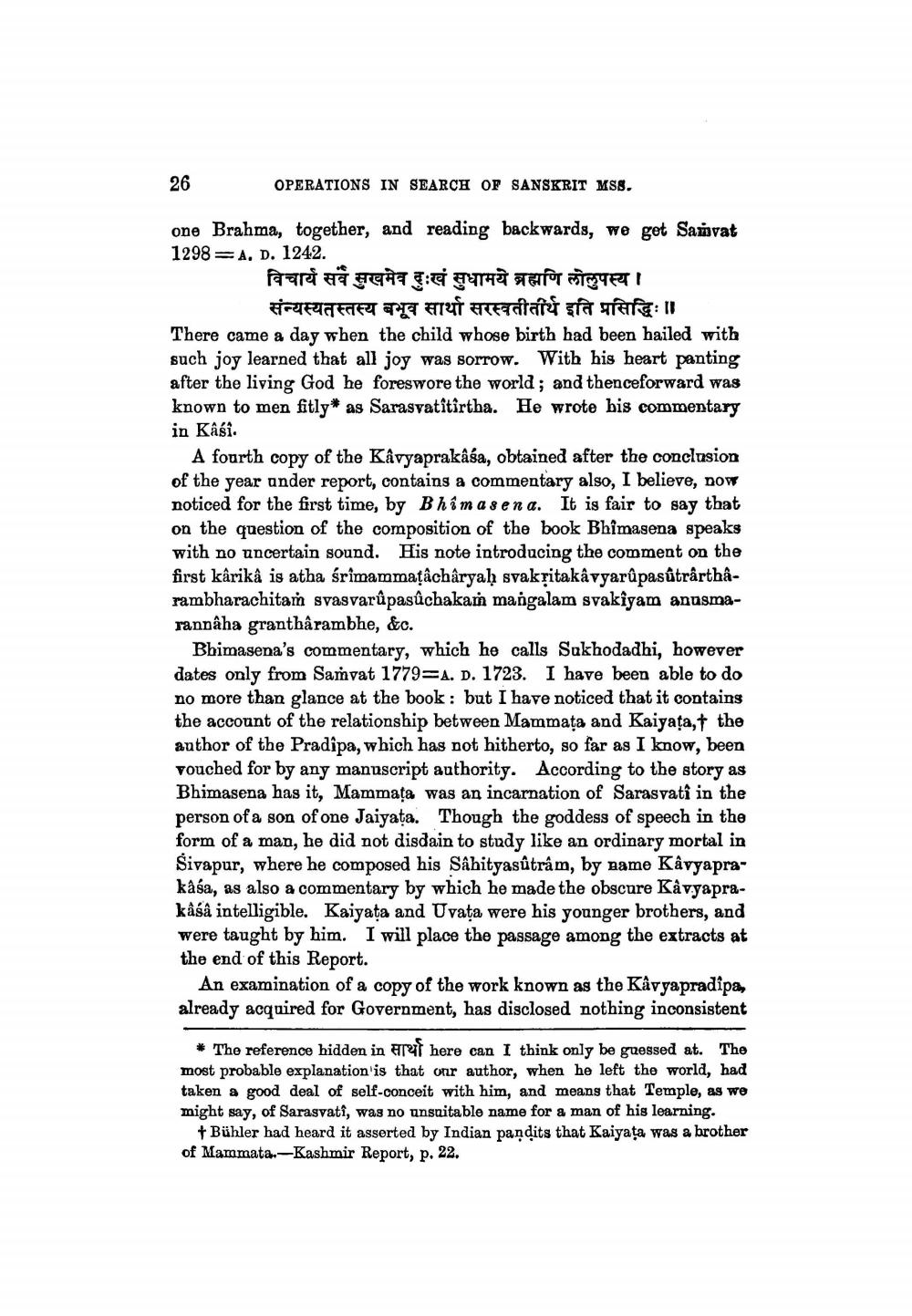________________
26
OPERATIONS IN SEARCH OP SANSKRIT MSS.
one Brahma, together, and reading backwards, we get Samvat 1298=A, D. 1242.
विचार्य सर्व सुखमेव दुःखं सुधामये ब्रह्मणि लोलुपस्य ।
संन्यस्यतस्तस्य बभूव सार्था सरस्वतीतीर्थ इति प्रसिद्धिः॥ There came a day when the child whose birth had been hailed with such joy learned that all joy was sorrow. With his heart panting after the living God he foreswore the world; and thenceforward was known to men fitly* as Sarasvatitirtha. He wrote bis commentary in Kasi.
A fourth copy of the Kâvyaprakaśa, obtained after the conclusion of the year ander report, contains a commentary also, I believe, now noticed for the first time, by Bhim as ena. It is fair to say that on the question of the composition of the book Bhimasena speaks with no uncertain sound. His note introducing the comment on the first kârikâ is atha śrimammatâchâryah svakřitakávyarûpasůtrårthârambharachitam svasvarûpasûchakam mangalam svakiyam anasmarannâha grantharambhe, &c.
Bhimasena's commentary, which he calls Sakhodadhi, however dates only from Samvat 1779=A. D. 1723. I have been able to do no more than glance at the book : but I have noticed that it contains the account of the relationship between Mammata and Kaiyata, t the anthor of the Pradipa, which has not hitherto, so far as I know, been vouched for by any manuscript authority. According to the story as Bhimasena has it, Mammata was an incarnation of Sarasvati in the person of a son of one Jaiyata. Though the goddess of speech in the form of a man, he did not disdain to study like an ordinary mortal in Sivapur, where he composed his Sahityasútrâm, by name Kavyaprakâśa, as also a commentary by which he made the obscure Kåvyaprakâśâ intelligible. Kaiyata and Uvata were his younger brothers, and were taught by him. I will place the passage among the extracts at the end of this Report.
An examination of a copy of the work known as the Kavyapradipa, already acquired for Government, has disclosed nothing inconsistent
* The reference hidden in het here can I think only be guessed at. The most probable explanation is that onr author, when he left the world, had taken a good deal of self-conceit with him, and means that Temple, as we might say, of Sarasvatî, was no ansaitable name for a man of his learning.
+ Bühler had heard it asserted by Indian pandits that Kaiyata was a brother of Mammata.-Kashmir Report, p. 22.




